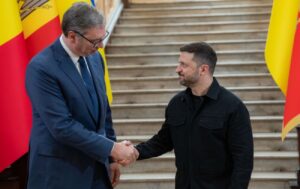
According to Serbian Economist, Ukrainian President Volodymyr Zelensky held a telephone conversation with Serbian President Aleksandar Vucic, during which the parties discussed European integration in detail and agreed to stay in touch. Zelensky reported on the conversation on his Telegram channel. The leaders also touched on coordination on regional security and the immediate international agenda.
We remind you that the day before, the European Commission published its annual reports on EU enlargement. The document on Serbia notes both the advanced elements of reforms and sensitive issues of foreign policy alignment with the EU. Vučić publicly reiterated his position that membership should be assessed on the basis of merit criteria rather than political alignment, against the backdrop of discussions on sanctions policy and dialogue on Kosovo.
At the same time, Kyiv is seeking to accelerate its own negotiation track with the EU. On the day the enlargement package was published, Zelensky called for the process to be brought to the opening of all clusters and for accession to be targeted by 2030, recognizing the need for further anti-corruption and institutional reforms.
In the context of the European Commission’s report, Belgrade is set to engage in dialogue with Brussels on aligning its foreign policy and economic agreements, while Kyiv is focusing on implementing recommendations for the next stage of negotiations. The positions of the leaders following the conversation indicate a willingness to maintain working contacts and exchange experiences in sectors related to the European agenda.
The previous confirmed call between Zelensky and Vučić took place on May 22, 2025.
https://t.me/relocationrs/1685
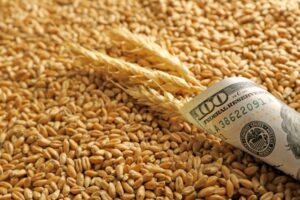
Ukraine exported 3.2 million tons of grains and oilseeds in the first four months of the 2025-2026 marketing year (MY, July-June), according to the Ukrainian Grain Association on Facebook.
According to the infographic, exports were most active in August (3.3 million tons) and October (3.21 million tons). At the same time, exports in October exceeded September figures (2.4 million tons) by 32%.
Wheat sales peaked in August at 2.048 million tons, which is 36.5% more than in October (1.5 million tons). Barley exports were also most active in August (324,000 tons), which is 36.1% more than in September (238,000 tons) and 62% more than in October (200,000 tons).
Corn exports, on the other hand, picked up in October and reached 1.094 million tons, significantly more than the September figure of 61 thousand tons and the August figure of 230 thousand tons.
Foreign trade in soybeans also picked up in October – 230 thousand tons, compared to 78 thousand tons in September and 208 thousand tons in August this year.
Rapeseed exports were most active in August – 519 thousand tons, while in September and October, 220 thousand tons and 177 thousand tons were delivered to foreign markets, respectively.
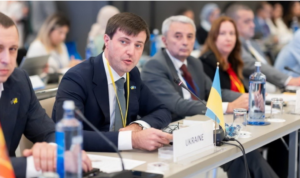
Ukraine is participating for the first time in the 48th session of the General Fisheries Commission for the Mediterranean (GFCM) in Malaga on November 3-9, 2025, as a full member. The updated list on the FAO website states that Ukraine became a contracting party on September 11, 2025.
The Commission consists of 24 contracting parties: Albania, Algeria, Bulgaria, Croatia, Cyprus, Egypt, the European Union, France, Greece, Israel, Italy, Lebanon, Libya, Malta, Monaco, Montenegro, Morocco, Romania, Slovenia, Spain, Syria, Tunisia, Turkey, and Ukraine. Five cooperating non-contracting parties are also involved in the work: Bosnia and Herzegovina, Georgia, Jordan, Moldova, and Saudi Arabia.
The official program of the session will take place from November 3 to 9, 2025. The decisions will be published by the FAO after the session closes. FAOHome
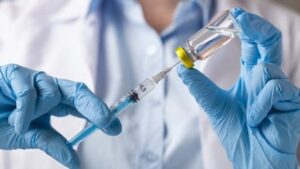
The pharmaceutical company Sanofi has reduced its supply of flu vaccines to Ukraine during the current epidemic season, delivering 100,000 doses with no additional deliveries planned.
According to information provided to Interfax-Ukraine by the pharmaceutical company, it supplied 250,000 doses to Ukraine during the previous epidemic season.
“The reduction in deliveries of Sanofi influenza vaccines this season is due to temporary difficulties in production processes, including the company’s global transition to the production of trivalent vaccines in accordance with updated WHO recommendations. The adaptation of technological and logistical processes is currently underway, which has temporarily affected the volume of vaccine supplies to countries in the northern hemisphere, including Ukraine. No additional vaccine supplies are expected this year,” the company said.
In addition, the company reported that Sanofi’s quadrivalent influenza vaccine, which was imported in the amount of 100,000 doses, remains the only vaccine registered by the Ministry of Health in Ukraine for the 2025/2026 epidemic season.
Currently, the media and social networks are reporting a significant shortage of flu vaccines during the current epidemic season. Private clinics are reporting that it is impossible to purchase the vaccine.
The Interfax-Ukraine agency is awaiting comments on the vaccine situation during the current epidemic season from the Ministry of Health, the State Emergency Service, and the State Service of Ukraine on Medicines and Drugs Control.
As reported, as of the end of September 2025, the State Medical Service announced that the first 76,000 doses of the Korean vaccine GC FLU, manufactured by GC BioPharma Corp. and imported by Biolabs LLC, had passed quality control. The quality control procedure was also passed by 100,000 doses of the French vaccine VAXIGRIP TETRA, manufactured by Sanofi Pasteur and imported by Sanofi-Aventis Ukraine LLC. In early October, Biolabs LLC planned to import another 54,000 doses of the GC Flu vaccine manufactured by GC Biopharma Corp.

Following the Kyiv International Economic Forum, entrepreneur Vasyl Khmelnytsky published a column with conclusions from a public conversation with undisputed world boxing champion Oleksandr Usyk. The key idea is that lasting victories are built on the “long game,” through discipline, consistency, and teamwork, rather than quick decisions.
According to the author, business and sports share the same principles: daily routine work, discipline, the ability to learn from mistakes, and reliance on the team. Usyk, using his own regime as an example, emphasizes that it is not motivation that matters, but habit and responsibility to the team. The column notes that long-term sustainability is created by investing in processes and people, and mistakes are seen as data for improvement.
The context of the forum is a focus on people and economic recovery. A charity auction was held during the meeting: gloves autographed by Usyk were sold for UAH 1,100,000, and the proceeds from the sale were donated to the Soborna Ukraine Foundation to support the children of fallen defenders.
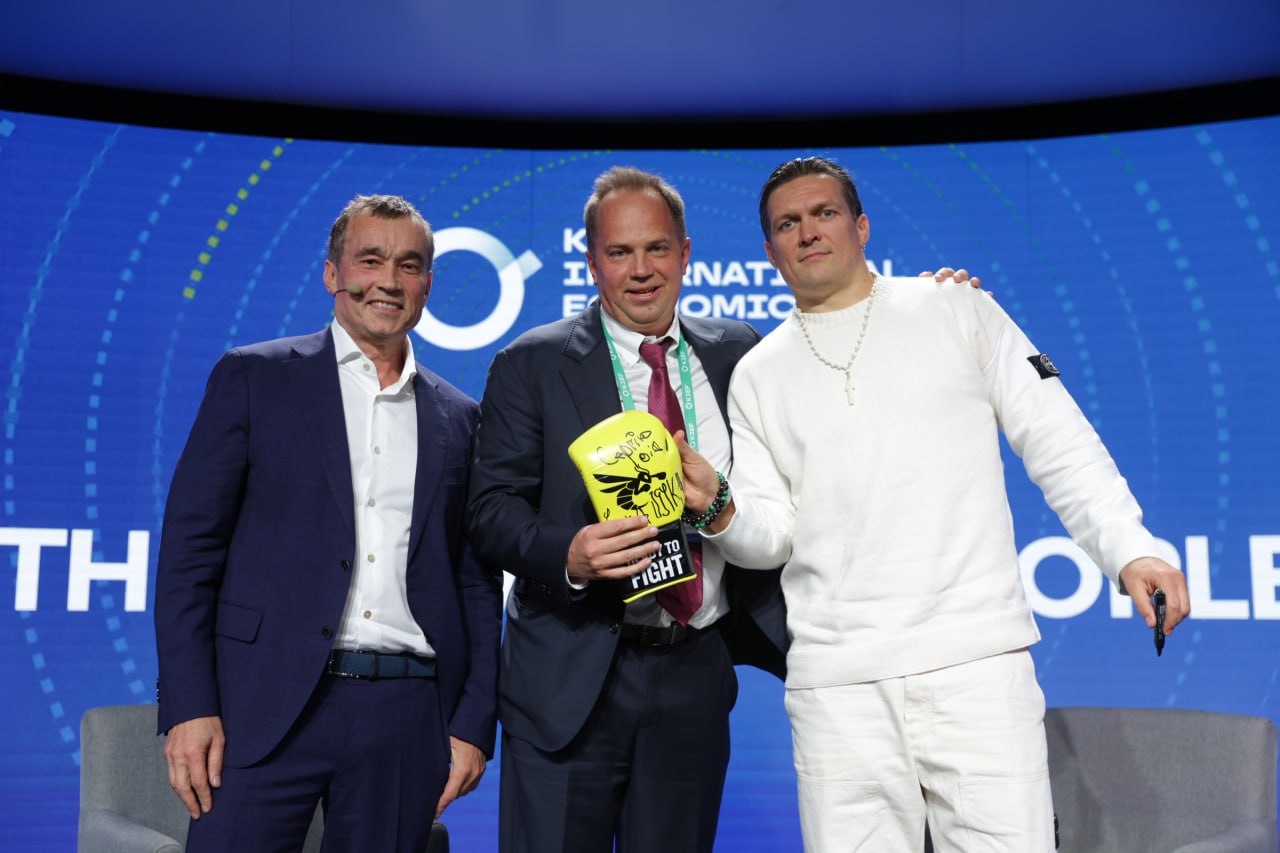
“We are in it for the long haul. A champion is not afraid to lose — he learns. A strong leader surrounds himself with strong people and delegates,” Vasyl Khmelnytsky highlighted from the conversation at KIEF.
What does all this mean for business?
1) Strategy: prioritize long-term goals and sustainability over “quick wins.”
2) Operations: focus on establishing routines and process metrics rather than one-off spikes.
3) Team: build trust and fair rules, strengthen the role of department leaders.
4) risk management: formalize error analysis and a plan for corrections after each “round.”
Vasyl Khmelnytsky is a Ukrainian entrepreneur and investor, founder of UFuture. He initiates and supports educational and entrepreneurial projects, including schools and acceleration programs. A regular participant in KIEF, he writes columns on entrepreneurship, team development, and business.
Oleksandr Usyk is a Ukrainian professional boxer and undisputed world heavyweight champion. He is known for his discipline, team approach, and systematic training. He participates in charitable and public initiatives and supports projects to help children and veterans.

Over the past month, Ethereum (ETH) rose to the $4,000+ zone with multiple “defenses” of the $4,000 level at the end of October, after which it entered a correction amid mixed flows in crypto ETFs and a pause in regulatory decisions in the US. As of Wednesday morning, the price was hovering around $3,300, below last week’s highs.
What drove the market last month?
After several rebounds from $4,000 at the end of October, activity rose above average, but momentum faded at the $4,050–4,200 support levels.
The decisions on new crypto ETFs expected in October were postponed due to the government shutdown in the US; however, some products still entered the exchange under a simplified procedure, which shifted the “main” catalysts to November.
In September, the SEC approved unified listing standards for commodity ETPs on leading US exchanges, which simplified the launch of new crypto ETFs and supported expectations for the expansion of product lines (including multi-crypto funds). I
Now let’s analyze the main factors for November–December (base scenarios).
1) Moderately positive. The launch of new ETFs/updated prospectuses and the resumption of institutional inflows to ETH are strengthening demand; technically, a return above $3,800–4,000 opens the way for a retest of the autumn highs.
2) Neutral. Overestimated expectations for ETFs and subdued on-chain indicators keep ETH in a wide range of $3,000–3,800 without a trend; local rallies are quickly fixed. (Benchmark: recent “sell zones” of $4,050–4,200).
3) Risky. Increased macro volatility or new outflows from ETH ETFs could trigger a decline to $2,800–3,100; in this case, the market will focus on medium-term support, and decisive drivers will be postponed until 2026. (Examples of data on outflows/capital flows into altcoins appeared this week).
Interestingly, Citi in September cited a base case estimate of $4,300 at the end of the year with a bullish scenario of $6,400 under favorable macro conditions and the use of Ethereum applications; the bearish case is $2,200.
After the spring network updates, the industry is discussing the next steps in the Ethereum roadmap; industry reviews mention the following UX and scalability improvements, but the key issue for the market in the coming weeks remains the regulatory block on ETFs in the US.
Note: forecasts are probabilistic and depend on macro conditions, ETF news, and fund inflows/outflows; investment decisions should be made with risk in mind.
https://www.fixygen.ua/news/20251105/efir-prosiv-pislya-testu-4-tis-prognozi-na-listopad-gruden.html